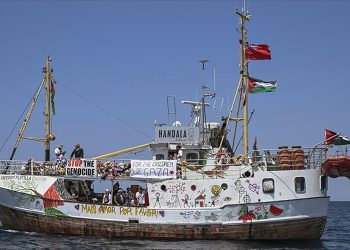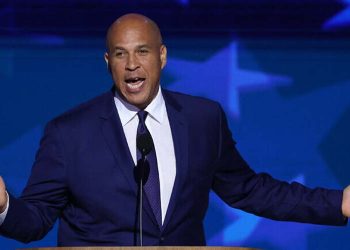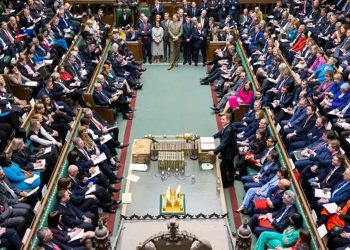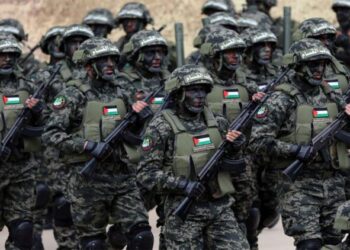WASHINGTON: The war in Ukraine and massive sanctions against Russia have triggered a contraction in global trade, sending food and energy prices sharply higher and forcing the International Monetary Fund to lower its global growth forecast next month, IMF Managing Director Kristalina Georgieva said.
The IMF has already lowered its economic forecasts for the United States, China and the global economy in January, citing risks linked to the COVID-19 pandemic, rising inflation, supply disruptions and US monetary tightening. At the time, it projected global economic growth would reach 4.4% this year, a downgrade of 0.5 percentage point.
Georgieva told reporters the unprecedented sanctions imposed on Russia over its invasion of Ukraine had caused an abrupt contraction of the Russian economy and it faced a “deep recession” this year. She said a default by Russia on its debt was no longer seen as “improbable.”
The chief economist of the World Bank said this week that both Russia and Belarus were squarely in “default territory.” Georgieva gave no detailed forecast for Russia or the global economy. The IMF is due to release its updated World Economic Outlook in mid-April.
In a separate interview, Georgieva said the fund still expected “a positive trajectory” for the world economy, but said the duration of the war would play a crucial role in determining growth and the future of multilateral cooperation.
The IMF’s executive board has approved $1.4 billion in emergency financing for Ukraine to help meet urgent spending needs and mitigate the economic impact of the invasion.
READ MORE: Western sanctions are akin to declaration of war: Putin
Georgieva told reporters hat the IMF was preparing to present a “funding mechanism” that would allow others to help Ukraine, but gave no details. She said the mounting pressure on Russia to end the war in Ukraine given the spillover effects it is having on economies around the world, including China.
Georgieva told reporters that China had more policy space to cushion the impact of the war, but it might find it hard to achieve its target growth rate of 5.5%.
She said the IMF had no program or policy relations with Russia at this point and its Moscow office was not operating. Members have condemned the war, which Russia calls a special military operation, but there has been no discussion about ending Russia’s membership in the global lender.
Georgieva added that it was “highly, highly, highly improbable” that Russia would be able to find a central bank to exchange its IMF Special Drawing Rights into currencies. She said the surge in inflation triggered by the war meant monetary tightening already underway in many countries would “go faster and go further” than expected. It would also have serious consequences for Latin America, the Caribbean, some Middle Eastern countries like Egypt and many countries in Africa.




































